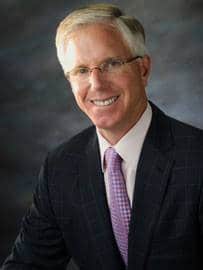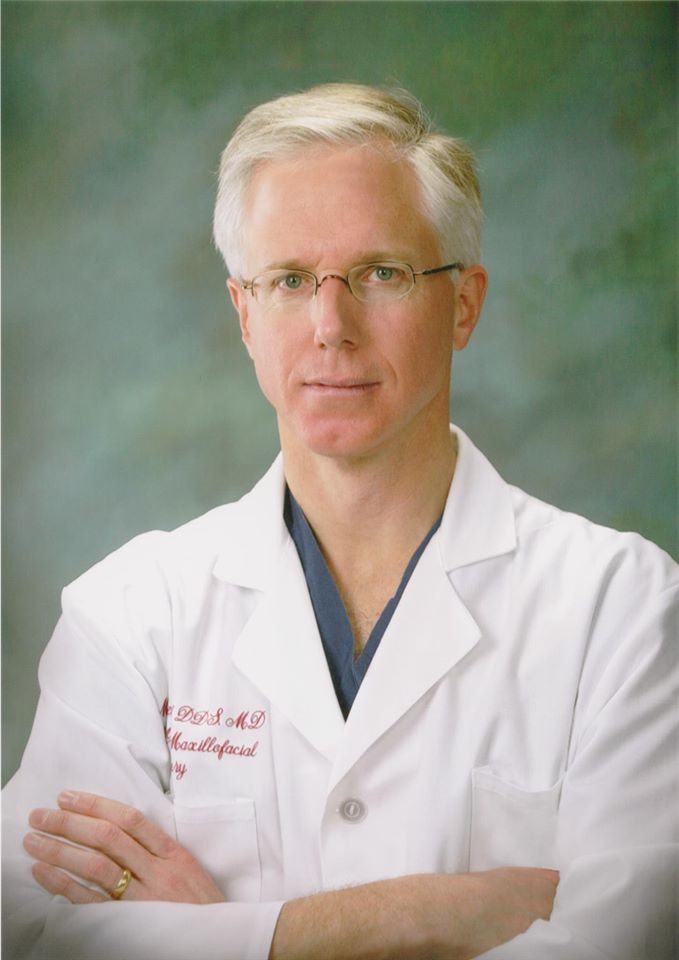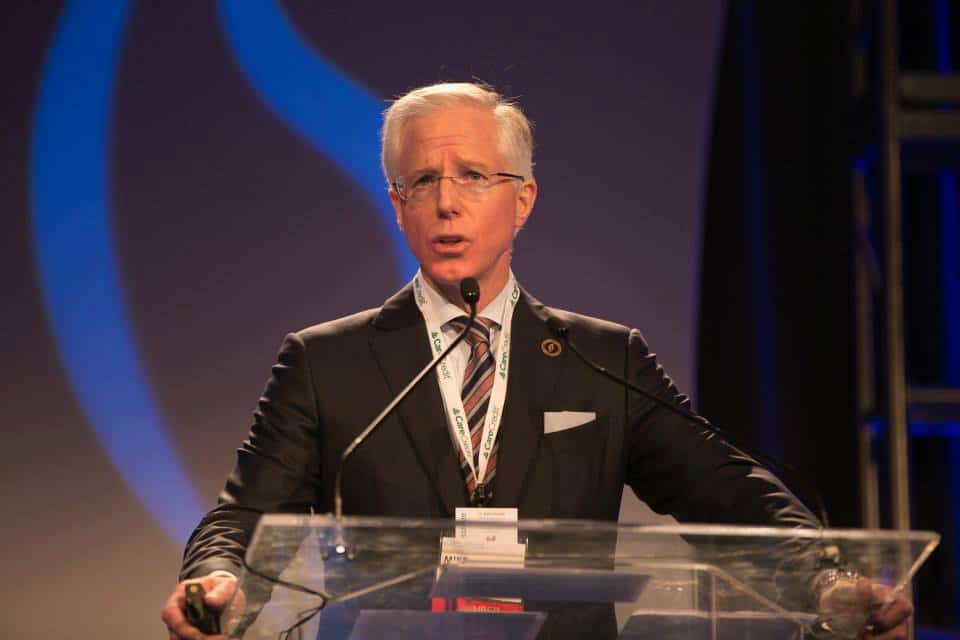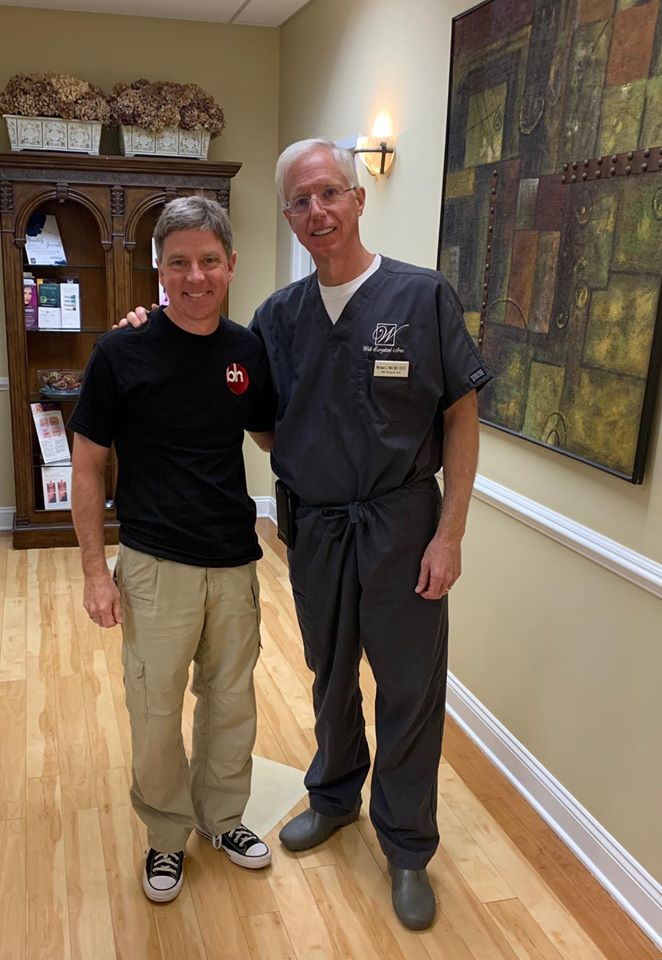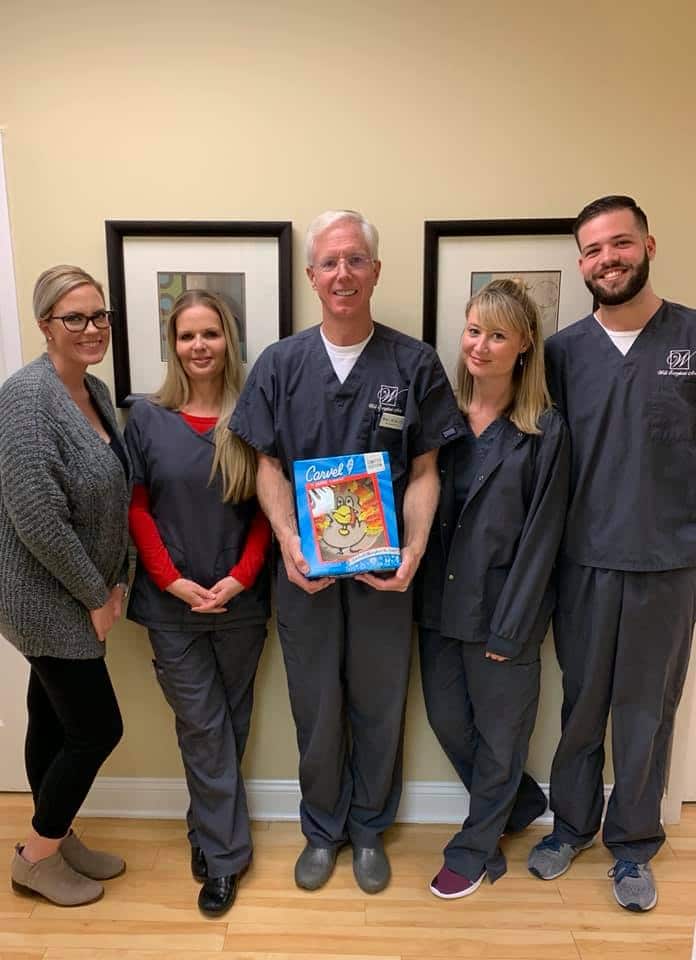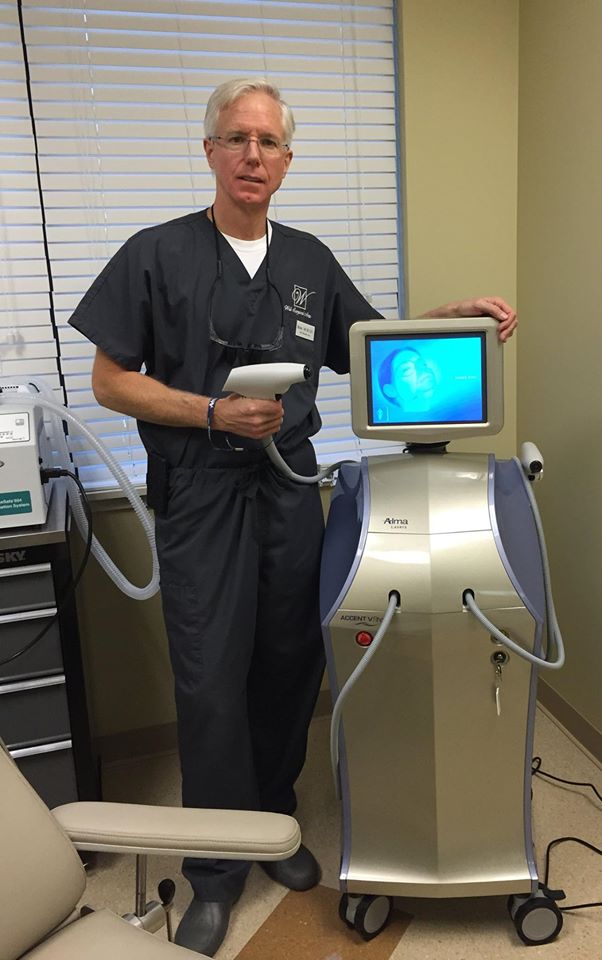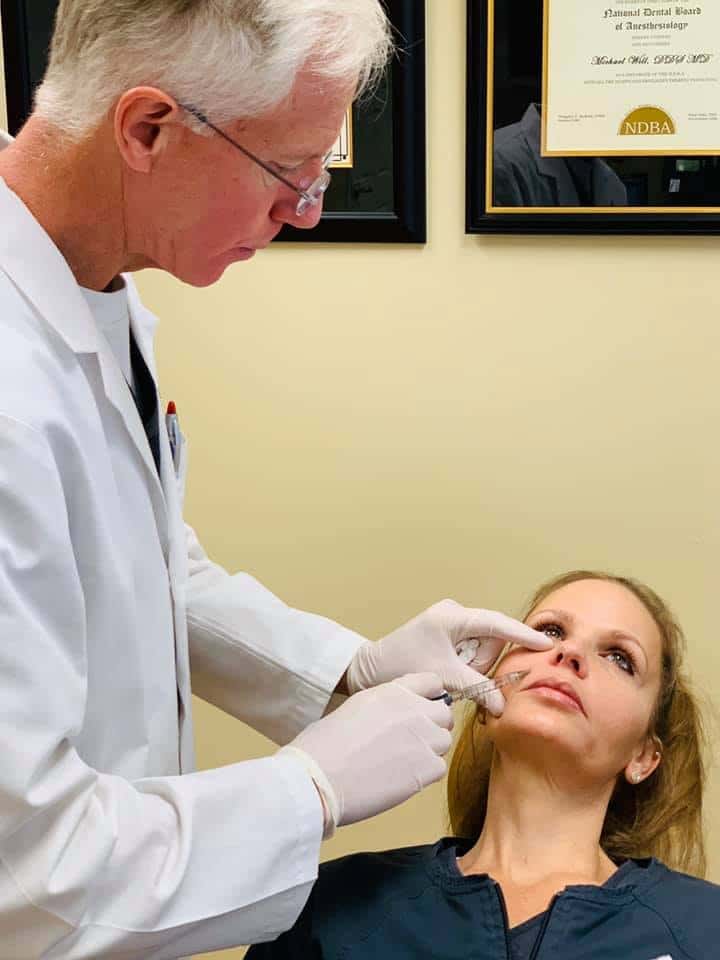Dr. Michael J. Will, Maryland cosmetic surgeon, received his bachelor’s degree from Washington and Jefferson College, his dental degree from Georgetown University and his medical degree from the University of Texas. He completed his General Surgery and Oral and Maxillofacial Surgery training at Brooke Army Medical Center in San Antonio, Texas. Dr. Will also completed a General Cosmetic Surgery fellowship at the Cosmetic Surgery Center in Little Rock, Arkansas.
He is retired from the U.S. Army with over twenty years of service as a maxillofacial and cosmetic surgeon. His final military assignment was spent as the Chairman, Residency Program Director and Consultant to the Surgeon General in Oral and Maxillofacial Surgery at Walter Reed Army Medical Center.
Dr. Will is a board certified Oral Surgeon, Cosmetic Surgeon, and Dental Anesthesiologist. He has authored numerous textbook chapters and scientific articles, and is a recognized national lecturer in Oral and Maxillofacial and Cosmetic Surgery.
Dr. Will is on the medical staff at Frederick Memorial Hospital (Frederick, Md).
Professional Affiliations:
- Diplomate – American Board of Oral and Maxillofacial Surgery
- Diplomate – American Board of Cosmetic Surgery
- Diplomate – American Dental Board of Anesthesiology
- Fellow – American Association of Oral and Maxillofacial Surgeons
- Fellow – American Academy of Cosmetic Surgery
- Fellow – American College of Surgeons
- Fellow – American Dental Society of Anesthesiology
- Maryland Society of Oral and Maxillofacial Surgeons
- Middle Atlantic Society of Oral and Maxillofacial Surgeons
- Board Examiner – American Board of Oral and Maxillofacial Surgery
- Board Examiner – American Board of Cosmetic Surgery
- President – American Board of Cosmetic Surgery
- Trustee – American Academy of Cosmetic Surgery
Dr. Will enjoys spending time with his wife, Debbie and two sons, Brian and Andrew. His other extracurricular interests include hunting, fishing, skiing and golf.
DENTAL IMPLANTS :
Dental implants are changing the way people live. They are designed to provide a foundation for replacement teeth which look, feel, and function like natural teeth. The person who has lost teeth regains the ability to eat virtually anything, knowing that teeth appear natural and that facial contours will be preserved. Patients with dental implants can smile with confidence. If you are in the Urbana, MD area, call us at (301)874-1707 to discuss your options with dental implants.
What are dental Implants?
The implants themselves are tiny titanium posts, which are inserted into the jawbone where teeth are missing. These metal anchors act as tooth root substitutes. They are surgically placed into the jawbone. The bone bonds with the titanium, creating a strong foundation for artificial teeth. Small posts are then attached to the implant, which protrude through the gums. These posts provide stable anchors for artificial replacement teeth.
Implants also help preserve facial structure, preventing bone deterioration that occurs when teeth are missing.
Zirconia Ceramic Dental Implants – A Holistic, Metal-Free Alternative
Ceramic dental implants are a metal-free alternative to teeth restoration. Titanium implants are most commonly used today, but we now also offer a ceramic option which is becoming more popular. Some patients opt for ceramic implants for holistic reasons or they have sensitivity toward metal like titanium. Being metal free, ceramic implants have a low chance of allergic reaction.
The Surgical Procedure for Dental Implants
For most patients, the placement of dental implants involves two surgical procedures. First, implants are placed within your jawbone. For the first three to six months following surgery, the implants are beneath the surface of the gums, gradually bonding with the jawbone. You should be able to wear temporary dentures and eat a soft diet during this time. At the same time, your dentist will be forming new replacement teeth.
After the implant has bonded to the jawbone, the second phase begins. Dr. Will uncovers the implants and attaches small posts that act as anchors for the artificial teeth. These posts protrude through the gums. When the artificial teeth are placed, these posts will not be seen. The entire procedure usually takes six to eight months. Most patients experience minimal disruption in their daily lives.
Surgical Advances with Dental Implants Procedure
Using the most recent advances in dental implant technology, Dr. Will is able to place single stage implants. These implants do not require a second procedure to uncover them, but do require a minimum of six weeks of healing time before artificial teeth are placed. There are even situations where the implants can be placed at the same time as a tooth extraction–further minimizing the number of surgical procedures.
Advances in dental implant technology have made it possible, in select cases, to extract teeth and place implants with crowns at one visit. This procedure, called “immediate loading,” greatly simplifies the surgical process.
Who actually performs the implant placement?
Implants are a team effort between an Oral and Maxillofacial Surgeon and a Restorative Dentist. While Dr. Will performs the actual implant surgery, and initial tooth extractions (as well as bone grafting, if necessary), it is the restorative dentist (your dentist) who fits and makes the permanent prosthesis. Your dentist will also make any temporary prosthesis needed during the implant process.
What types of prostheses are available for dental implants?
A single prosthesis (crown) is used to replace one missing tooth – each prosthetic tooth attaches to its own implant. A partial prosthesis (fixed bridge) can replace two or more teeth and may require only two or three implants. A complete dental prosthesis (fixed bridge) replaces all the teeth in your upper or lower jaw. The number of implants varies, depending upon which type of complete prosthesis (removable or fixed) is recommended. A removable prosthesis (over denture) attaches to a bar or ball in socket attachments, whereas a fixed prosthesis is permanent and removable only by the dentist.
Where is the implant procedure performed?
Dr. Will performs in-office implant surgery in a hospital-style operating suite, thus optimizing the level of sterility. In-patient hospital implant surgery is for patients who have special medical or anesthetic needs or for those needing extensive bone grafting from the jaw, hip, or tibia.
Why dental implants?
Once you learn about dental implants, you realize there is finally a way to improve your life. When you lose several teeth – whether it’s a new situation or something you have lived with for years – chances are you have never become fully accustomed to losing such a vital part of yourself. Dental implants can be your doorway to renewed self-confidence and peace of mind.
Who developed implant procedure?
A Swedish scientist and orthopedic surgeon, Dr. Per-Ingvar Branemark, developed this concept for oral rehabilitation more than thirty-five years ago. With his pioneering research, Dr. Branemark brought renewed comfort and self-confidence to millions of individuals facing the frustration and embarrassment of tooth loss.
Why would you select dental implants over more traditional types of restorations?
There are several reasons: Why sacrifice the structure of surrounding good teeth to bridge a space? In addition, removing a denture or a “partial” at night may be inconvenient, not to mention that dentures that slip can be uncomfortable and rather embarrassing.
Are you a candidate for implants?
If you are considering implants, your mouth must be examined thoroughly and your medical and dental history reviewed. If your mouth is not ideal for implants, then ways of improving the outcome, such as bone grafting, may be recommended.
What type of anesthesia is used in implants?
The majority of dental implants and bone graft can be performed in the office under local anesthesia, with or without general anesthesia.
Do Implants need special care?
Once the implants are in place, they will serve you well for many years if you take care of them and keep your mouth healthy. This means taking the time for good oral hygiene (brushing and flossing) and keeping regular appointments with your dental specialists.


